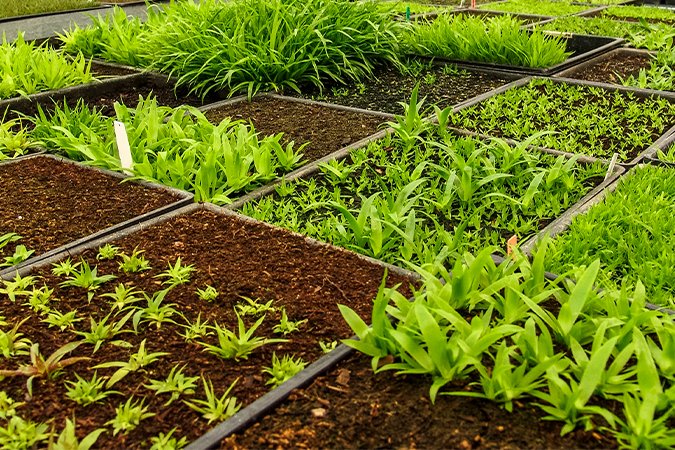NPK fertilizer, standing for Nitrogen, Phosphorus, and Potassium, is a vital component in promoting healthy plant growth. Understanding the composition and application of Organic NPK fertilizer is crucial for gardeners and farmers alike.
Understanding NPK Ratio
The NPK ratio, typically displayed on fertilizer labels as a series of three numbers (such as 10-10-10), represents the percentage of each nutrient in the fertilizer blend. This ratio guides users in selecting the appropriate fertilizer for their specific needs.
Importance of Nitrogen in NPK Fertilizer
Nitrogen plays a pivotal role in plant growth, aiding in the formation of chlorophyll, which is essential for photosynthesis. It promotes lush, green foliage and enhances overall plant vigor.
Role of Phosphorus in NPK Fertilizer
Phosphorus supports root development and helps plants utilize energy from the sun. It is particularly important during the early stages of growth and flowering, aiding in the production of fruits and seeds.
Significance of Potassium in NPK Fertilizer
Potassium contributes to overall plant health and resilience. It strengthens cell walls, regulates water uptake, and enhances resistance to diseases and environmental stresses.
Types of NPK Fertilizers
NPK fertilizers come in various forms, including granular, liquid, and slow-release formulations. Each type offers distinct advantages depending on the specific requirements of the plants being grown.
Choosing the Right NPK Fertilizer for Your Plants
Selecting the appropriate NPK fertilizer involves considering factors such as soil composition, plant type, growth stage, and desired outcomes. Conducting a soil test can provide valuable insights into nutrient deficiencies and guide fertilizer selection.
Application Methods of NPK Fertilizer
NPK fertilizers can be applied through various methods, including broadcasting, banding, foliar spraying, and fertigation. Each method has its advantages and is chosen based on factors such as crop type, soil condition, and equipment availability.
Dosage and Frequency of NPK Fertilizer Application
Determining the correct dosage and frequency of NPK fertilizer application depends on factors such as soil fertility, plant requirements, and environmental conditions. Over-application can lead to nutrient imbalances and environmental pollution, while under-application may result in stunted growth and poor yields.
Common Mistakes to Avoid When Using NPK Fertilizer
Avoiding common mistakes such as over-fertilization, improper application techniques, and neglecting soil health is essential for maximizing the benefits of NPK fertilizer while minimizing negative impacts on the environment.
Environmental Impact of NPK Fertilizer
While NPK fertilizers can significantly boost crop yields, improper use can lead to negative environmental consequences such as nutrient runoff, soil degradation, and water pollution. Adopting sustainable practices and incorporating organic alternatives can help mitigate these effects.
Organic Alternatives to NPK Fertilizer
Organic alternatives to synthetic NPK fertilizers include compost, manure, bone meal, and seaweed extracts. These natural amendments not only provide essential nutrients but also improve soil structure and microbial activity.
Tips for Maximizing the Benefits of NPK Fertilizer
To maximize the benefits of NPK fertilizer, consider factors such as timing of application, nutrient availability, and complementary soil amendments. Regular monitoring and adjustment of fertilizer practices based on plant response and soil tests are key to achieving optimal results.
FAQs about NPK Fertilizer
-
What does NPK stand for?
NPK stands for Nitrogen, Phosphorus, and Potassium, the three essential nutrients required for plant growth.
-
How does NPK ratio affect plant growth?
The NPK ratio determines the proportion of each nutrient in the fertilizer blend, influencing plant development, flowering, and fruiting.
-
Can I use NPK fertilizer for all types of plants?
While NPK fertilizer is suitable for many plants, it's essential to consider specific nutrient requirements and soil conditions to achieve optimal results.
-
What is the best time to apply NPK fertilizer?
The timing of NPK fertilizer application varies depending on factors such as plant type, growth stage, and climate. Generally, it's best to apply fertilizer before or during periods of active growth.
-
Are there any alternatives to synthetic NPK fertilizers?
Yes, organic alternatives such as compost, manure, and natural amendments provide nutrients while improving soil health and sustainability.
Conclusion
NPK fertilizer is a fundamental tool for promoting healthy plant growth and maximizing crop yields. By understanding its composition, application methods, and environmental impact, gardeners and farmers can effectively utilize NPK fertilizer while minimizing negative consequences on the environment.


No comments yet